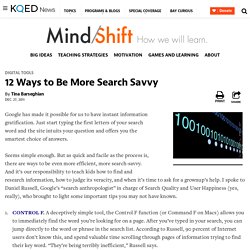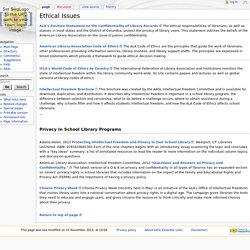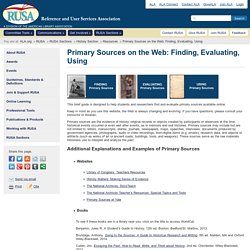

Standards and Curriculum - Library Services. Plagiarism Quiz. 9-10: Master You're a plagiarism expert!

Continue writing originally and bolstering ideas with properly cited sources. Tweet how awesome you are and share it with your classmates, friends, or instructors! 7-9: Pro You're a citation pro! 5-7: In-Training You’re still learning the ins and outs of plagiarism. 1-5: Newbie According to your score, you may be in danger of plagiarizing. 12 Ways to Be More Search Savvy. Google has made it possible for us to have instant information gratification.

Just start typing the first letters of your search word and the site intuits your question and offers you the smartest choice of answers. Seems simple enough. But as quick and facile as the process is, there are ways to be even more efficient, more search-savvy. And it’s our responsibility to teach kids how to find and research information, how to judge its veracity, and when it’s time to ask for a grownup’s help. I spoke to Daniel Russell, Google’s “search anthropologist” in charge of Search Quality and User Happiness (yes, really), who brought to light some important tips you may not have known. CONTROL F. To those who wonder if Google is making us stupid, Russell has a pithy response: “Plato said that about books.”
Punctuation, symbols & operators in search - Search Help. You can use symbols or words in your search to make your search results more precise. Google Search usually ignores punctuation that isn’t part of a search operator. Don’t put spaces between the symbol or word and your search term. A search for site:nytimes.com will work, but site: nytimes.com won’t. Refine image searches Overall Advanced Search Go to Advanced Image Search. Search for an exact image size Right after the word you're looking for, add the text imagesize:widthxheight. Example: imagesize:500x400 Common search techniques Search social media Put @ in front of a word to search social media. Search for a price Put $ in front of a number. Cornell University - College Of Arts and Sciences - Plagiarism. Examples: Word for Word Plagiarism: How to Recognize Plagiarism, School of Education, Indiana University at Bloomington.
Columbia Copyright Advisory Office. Cb_copyright. Copyright Alliance Foundation. 2015-02-17 Google Education Trainer Workshop - EdTechTeam. Ethical Issues. ALA's Position Statement on the Confidentiality of Library Records The ethical responsibilities of librarians, as well as statues in most states and the District of Columbia, protect the privacy of library users.

This statement outlines the beliefs of the American Library Association on the issue of patron confidentiality. American Library Association Code of Ethics The ALA Code of Ethics are the principles that guide the work of librarians, other professionals providing information services, library trustees, and library support staffs. The principles are expressed in broad statements which provide a framework to guide ethical decision making. IFLA's World Code of Ethics by Country The International Federation of Library Association and Institutions monitors the state of intellectual freedom within the library community world-wide.
Its site contains papers and lectures as well as global versions of library codes of ethics. Privacy in School Library Programs American Library Association. Reference & User Services Association (RUSA) This brief guide is designed to help students and researchers find and evaluate primary sources available online.

Keep in mind as you use this website, the Web is always changing and evolving. If you have questions, please consult your instructor or librarian. Primary sources are the evidence of history, original records or objects created by participants or observers at the time historical events occurred or even well after events, as in memoirs and oral histories. Primary sources may include but are not limited to: letters, manuscripts, diaries, journals, newspapers, maps, speeches, interviews, documents produced by government agencies, photographs, audio or video recordings, born-digital items (e.g. emails), research data, and objects or artifacts (such as works of art or ancient roads, buildings, tools, and weapons). These sources serve as the raw materials historians use to interpret and analyze the past.